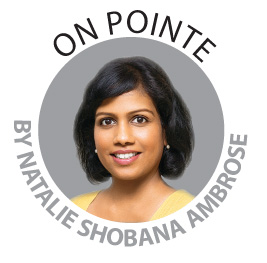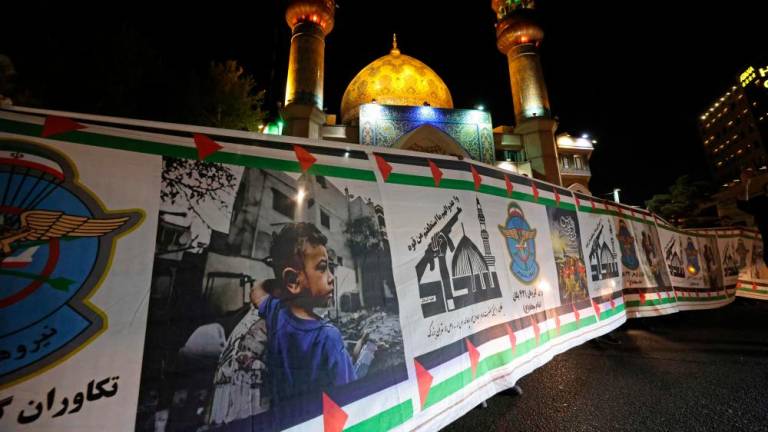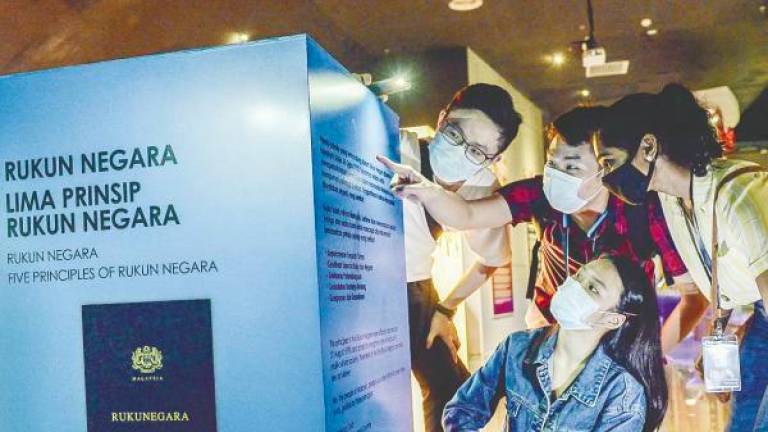MUTED, but listening. Muted, but learning. That is one of many phrases coming out of #blacklivesmatter protests in the United States. People muting their social media presence to listen, share and think about how to improve the state of their nation.
Across the world, similar protests be it physical or even through the voluntarily blacking out of social media pages are showing that people are thinking and wanting to understand more about race and privilege. These are tough conversations to have but perhaps a little easy to engage in and support from a distance when the issues are about whites and blacks in faraway America, but it’s not so easy a conversation when it’s about race and related issues in Malaysia.
For a multicultural Malaysia, race and related issues have always been our Achilles heel. So often we have conversations based on race and derogatory terms are common place that we Malaysians are so unaware of how racist we actually are. In more recent times, such comments are even more rampant as keyboard warriors spew rants like a well-oiled practised routine. All this goes unchecked.
So much has been said and written about race in this country and all of us have experienced racism in some form in our lives. So we are very aware that Malaysia has a race and privilege problem, one that cannot be discussed publicly in a mature and objective manner. But instead of listing down the grievances, how do we move forward. There are many takeaways from what is happening in America that are applicable to the Malaysian context. And if we are to “strive for better unity between the races” which are words enshrined in the first part of the Rukun Negara, here are two of the many things we could be working on.
Awareness of our own privilege
We may not be divided by clear white and black spectrums but we are extremely divided by race, colourism and privilege. The country functions under an ethnic hierarchy what Preeta Samarasan terms the race ladder, which is also the title of her recent article on racial privilege in Malaysia.
So even when you take away the constraints of structural racism and look at where the colour of your skin places you on that ladder in everyday life, some groups of people are always at a jarring disadvantage.
Now we all know our place on this ladder and the takeaway is how we use the privilege we have to benefit those who are permanent fixtures at the bottom of the ladder.
It is as simple as being aware of the people around you and how they are being treated, respected and disrespected. It is about a conscious effort in making close connections with people of different backgrounds and ethnicities. It is about looking at our social circles and checking if it is dominated by mono-cultural interactions and changing that. Exposure and raising consciousness about stereotyping and calling out offensive racialised, coloured discourse even in the privacy of our homes and social media feeds is important. This is uncomfortable work and it also means giving up our own privilege which is never easy. But if injustices around the world based on race, ethnicity, skin colour and belief systems are grating you and your consciousness, then perhaps it is time to look at those same injustices happening in Malaysia to those from non-majority backgrounds.
There is great benefit in the unlearning of our own prejudices and examining how we treat and speak of and speak to minority groups including the marginalised and undocumented or groups that identify by specific experiences and characteristics like those who are differently-abled or people who identify differently to our own constructs of gender and sexual orientation.
This is something we Malaysians are not very good at doing, but if you are able to acknowledge the advantage your privilege carries and use it in a positive way, that itself is very powerful.
A multicultural public administration and civil service
One jarring optic that is continuously repeated in America’s race relations is of a majority white authority against the country’s minority people. So even when a situation is not crime related, the subtext is still about a white-majority who have legal authority over the coloured minority. This sets a very dangerous tone and at the same time highlights the importance of a multicultural civil service and public administration.
When a crime is committed, the discourse should be about the crime and not the race of the criminal or the law enforcer. But when such authoritative positions are held by one race, this quickly becomes a tinderbox issue of racism, discrimination, bias and dominance, when it should not be.
We have seen this happening in our own country and yet we have failed to address it. That is why it is so important that the country’s institutions and those who run it bear the imprint of our multiculturalism. That’s why our leadership has to reflect and represent a diverse Malaysia.
Diversity in public administration is not about fairness but an integral element of organisational excellence. Research proves that it boosts legitimacy, it improves interracial harmony, promotes improved problem-solving and innovation, and also weeds out highly prejudiced individuals.
We talk about better human resource management of the public service sector wanting capable and qualified entrants but we conveniently do not acknowledge the systemic prejudice within the system that disallows diversity to flourish.
Right now, we as Malaysians have the advantage of seeing how such discrimination can tear a country apart. But if all we are doing is saying we stand in solidarity because it puts us in good company, then what we are doing is absolving ourselves from the responsibility that comes with standing in solidarity.
It is very easy to turn our social media feeds into echo chambers when there is that protective layer. And at times like these, the talking often runs ahead of the doing. But once this topic is not trending, how will each of us address our own privilege in this country?
How will we address colourism and micro-aggression in this country? And will you still use your voice and privilege to dismantle such inequalities when no one is watching?
Comments: letters@thesundaily.com














